Editor’s Note: CNN Insider Guides are thoroughly checked for accuracy. Given the fluid nature of the travel industry, however, some listings may fall out of date before guides can be updated. The best practice is to confirm current information on official websites before making plans to visit any business or attraction.
In recent decades, Munich has exuberantly celebrated Oktoberfest and other traditions, while transforming itself into one of the most affluent and modern cities on the planet. The best of Munich (aka München) is a city of high culture, with superb museums and theaters. And while there are many mainstream stores and up-market retailers, independent shops, cafés, bars and restaurants thrive.
Yes, Munich is known for the world’s largest beer festival, Oktoberfest, but year-round there are fairs, beer cellars and abundant green spaces to enjoy. And the Alps are just more than an hour away. The best of Munich’s local secrets start here:
Hotels
Luxury
Bayerischer Hof
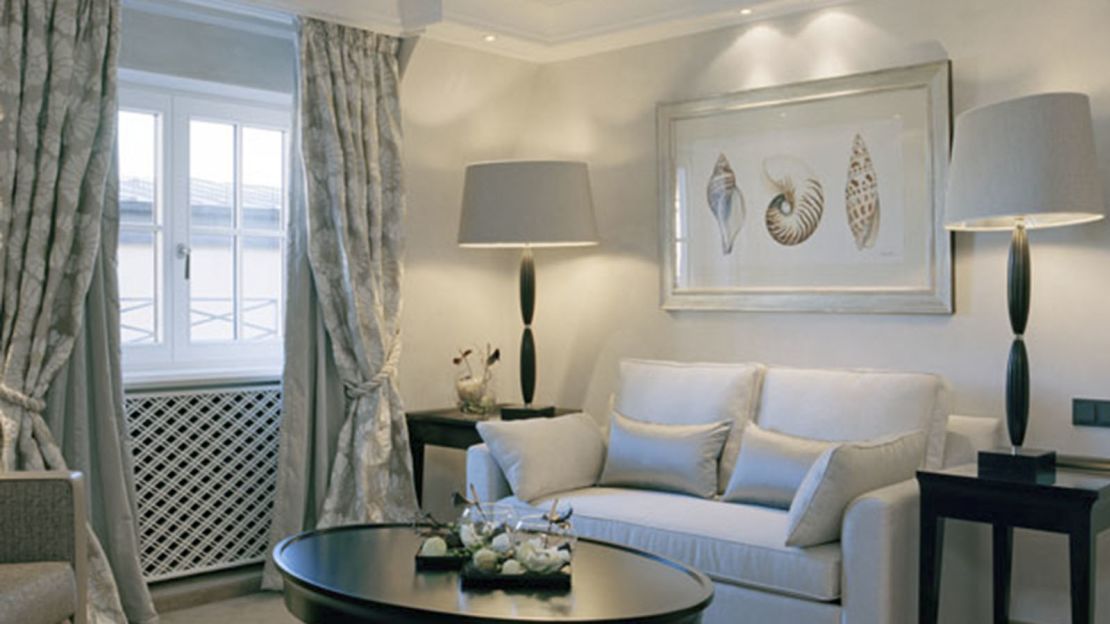
It’s easy to pigeonhole the Bayerischer Hof as just another expensive luxury hotel. There’s the Michelin-starred restaurant, the swanky suites, the rooftop Blue Spa and Lounge with panoramic city views, a private cinema and to top it all off, Palais Montgelas, the adjoining early 19th-century palace.
Excepting its combination of luxury and history, however, what sets this 171-year-old hotel apart is that it houses one of the best of Munich’s traditional Bavarian restaurants and, in Night Club, one of Germany’s best live jazz venues.
Mid-range
Campo dei Fiori
The smallest of Derag Livinghotels’ Munich locations is a stylish, zero-energy EU GreenBuilding-certified hotel and serviced residence near Viktualienmarkt, the city center’s huge open-air daily farmers and crafts market. The list of appointments within the Campo’s 43 rooms includes: Internet-accessible TVs, body-adaptive Oel Vital beds that feature a layer of vegetable oil for “any hardness” and environmentally friendly steam wellness showers rounded out by free Wi-Fi, fully-equipped kitchenettes and a continental breakfast. In what may be the most novel and welcome amenity of all, the minibar comes with two free beers.
Campo Del Fiori, Utzschneiderstrasse 3; +49 89 88 56 56-0
Budget
Cocoon
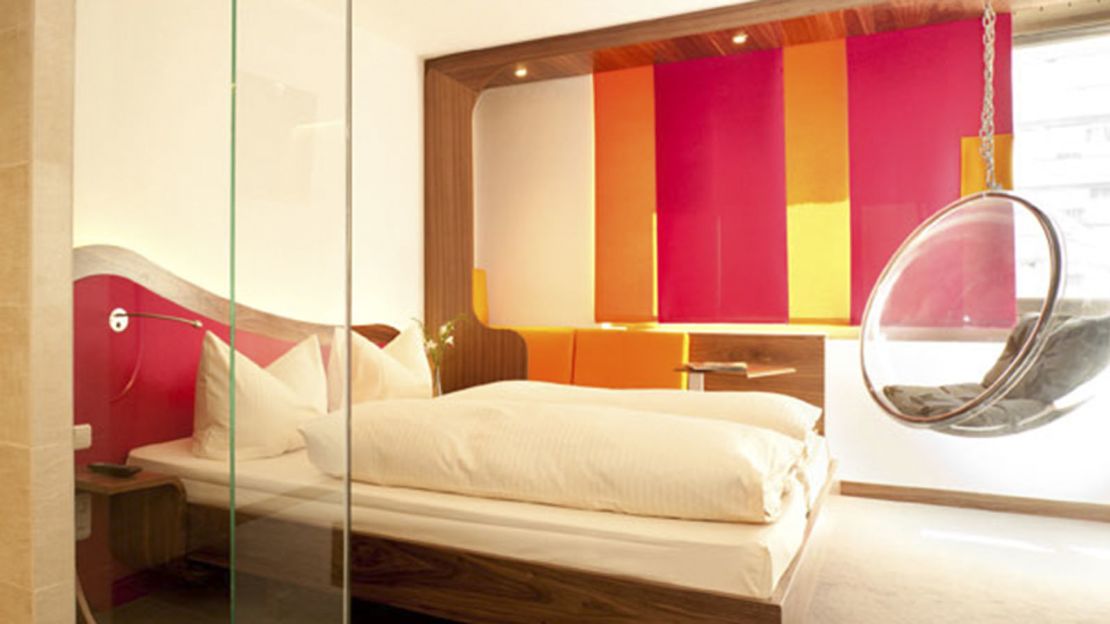
As the name suggests, Cocoon is a cozy, contemporary profile in lodging efficiency: space and amenities are maximized in equal measure, with room appointments like the bathroom, shower and a specially designed workspace neatly sectionalized in roughly half the typical room dimensions. Rooms feature signature see-through seating pods that hang from the ceiling along with a bright color palette that reaffirms the hotel’s upbeat identity.
Cocoon’s original location is on Lindwurmstrasse, between Sendlinger Tor (a former city gate) and the expansive Theresienwiese, perennial home of Oktoberfest. Its newer, sister branch is located even closer to the Altstadt (historic city center), at Stachus. Either makes a fun base for exploring the best of Munich.
Dining
Dallmayr
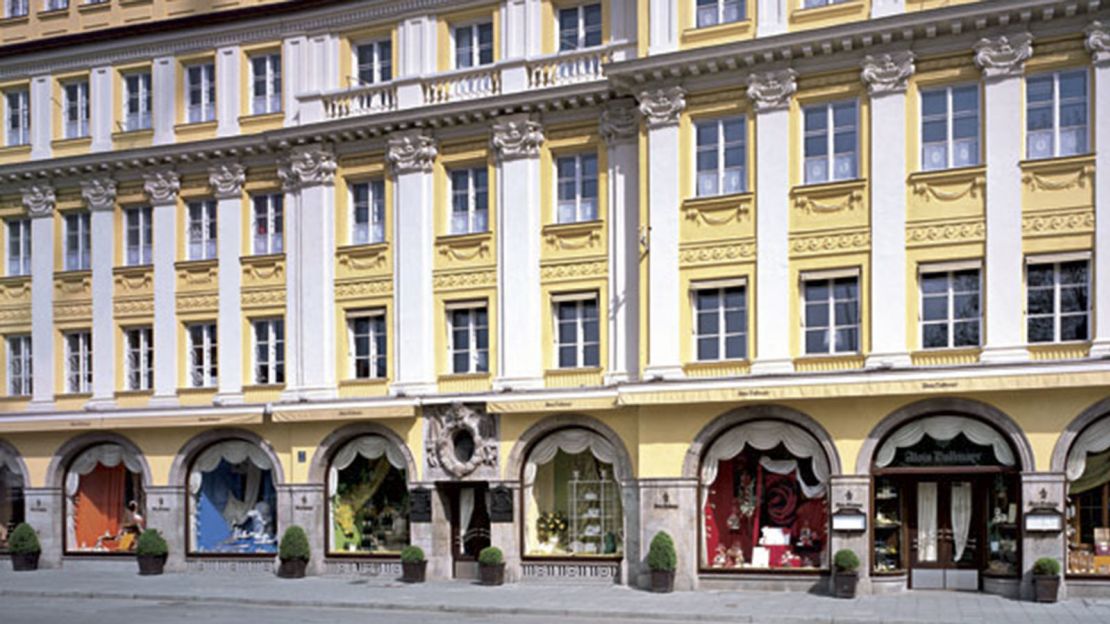
Dallmayr combines three of the best of Munich’s most renowned food experiences in one building: delicatessen, café-bar and Michelin-starred restaurant. The history of Dallmayr the grocer dates back three centuries.
Entering the emblematic building from behind the Rathaus on Marienplatz is dazzling, with its elegant 19th-century architecture housing all manner of foods, from traditional Bavarian Weisswurst (white veal sausage) and chocolate to exotic fruits and cheeses. Upstairs, a dinner at Dallmayr offers modern presentations of continental classics that are artful, balanced and excellent. Meals here are regarded among the finest in Germany.
Schrannenhalle
Dismantled nearly 60 years ago, pieces of Schrannenhalle were recently rediscovered and reassembled at the original site. Schrannenhalle is a glass-dominated, upmarket, expertly conceived mélange of eateries and stores, all in the city’s former grain market. Abutting the Viktualienmarkt, the quality is high, as are the prices, whether it’s a bottle from Champagne & More, meat from Metzgerei Wild or a quiche and éclair from Oh La La!
Käfer (+49 89 23 88 87 819), one of Germany’s premier delicatessens and catering services, has a store and café-restaurant here, which further contributes to Schrannenhalle’s reputation among the classiest series of snack bars around.
Café Frischhut
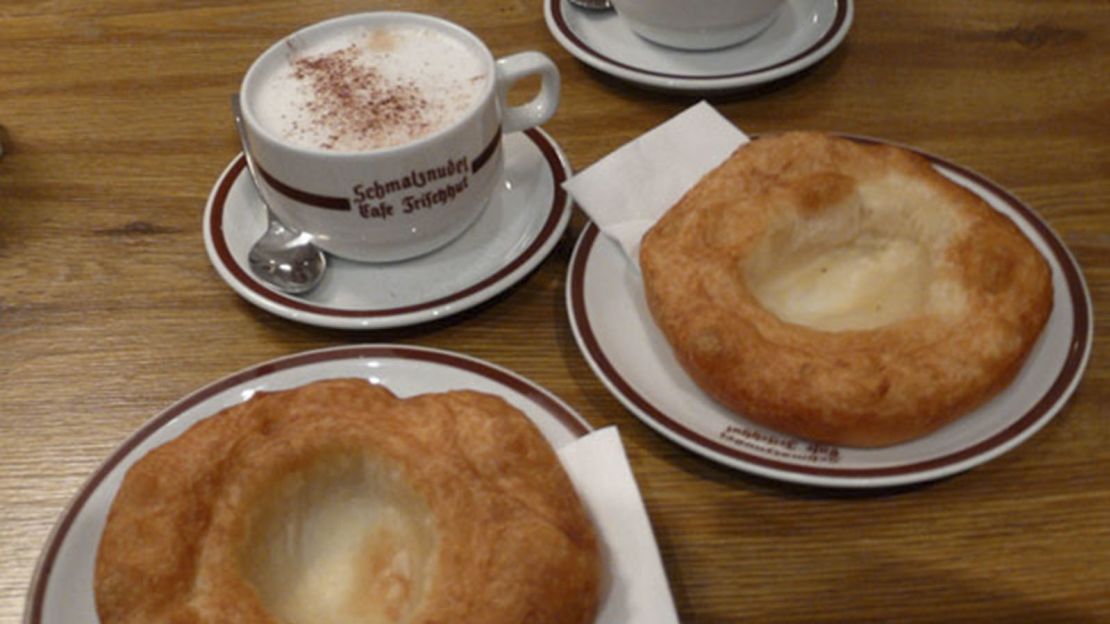
It doesn’t have a website. It’s tiny. It’s easily overlooked. And it’s located next to the Viktualienmarkt, meaning competition for visitors’ attention is hot. But Café Frischhut doesn’t have to worry about any of that. A veritable best of Munich institution, its traditional Schmalznudel – simple donut-like creations – attract lines out the door. Often the sight of these pastries in the window is enough, but any who remain defiant are powerless to resist the pleasant, deep-fried sugary smell that wafts out of the small wood-fronted shop.
Beer cellars and beer gardens
The year 2012 marks two centuries since Munich’s first beer gardens were officially established. Nowadays, the best of Munich is renowned for its beer cellars and breweries, and most Munich Wirtshäuser (pub-restaurants) provide good-quality, traditional Bavarian beer and food. The most Munich of activities.
Park Café is equal parts café, beer garden and nightclub, with a program of live bands. Whether in the garden during the summer sun with a beer or raving it up on an evening of live music, Park Café is a place for locals to be seen. Wirtshaus in der Au is another best of Munich one-off, serving an assortment of traditional and not-so-traditional Knödel, potato- or bread-based dumplings that complement meat and gravy. The difference here is that the chef produces a variety of versions, including bio-cheese and spinach, and tomato-olive, zucchini and aubergine.Though open throughout the year serving traditional Bavarian roast meats, Seehaus is, for many, associated with the sun and See (German for “lake”). Ensconced in the Englischer Garten, the best of Munich’s largest public park, it draws thousands when there’s even a hint of sunshine.
Nightlife
Atomic Café
There is absolutely nothing spectacular looking about Atomic Café. But for years, this Alstadt live space has showcased a parade of bands on their way up. Performers at Atomic Café generally come from the indie scene, many from Britain, but also from across the globe. Regular DJs provide sounds from Northern Soul to dance to funk to garage to Motown. This is a top venue for celebrating music styles both old and new.
Atomic Café, Häberlstrasse 19; +49 89 30 77 72 32
Schumann’s
Once a jobbing barman, now in his 70s, Charles Schumann is arguably Germany’s most legendary bar owner. He owns three in the best of Munich list, but Schumann’s Bar at the Hofgarten is where sophisticates head for crafted cocktails. Schumann’s own drinks underpin his legendary status, notably creations such as the Swimming Pool (featuring vodka, light rum, coconut cream, pineapple juice and Blue Curacao) and the Flying Kangaroo (similar, substituting Blue Curacao with Galliano and adding orange juice).
P1
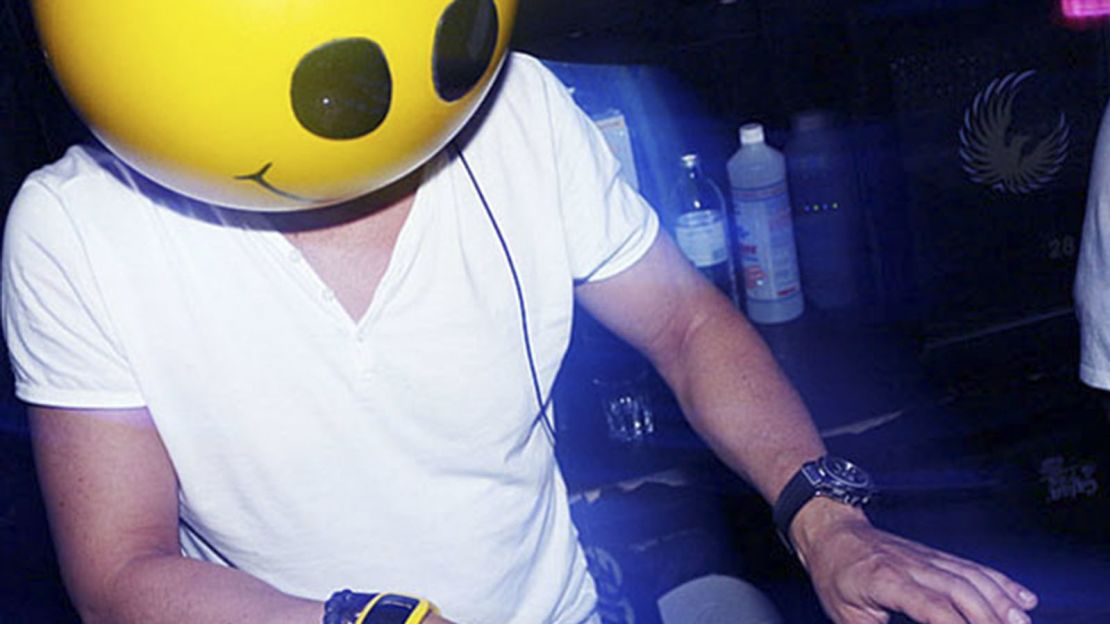
Located at the edge of the Englischer Garten, adjacent to the Nazi-period neo-classical Haus der Kunst art exhibition center, DJs at P1 play funk, disco, bossa nova, soul and jazz. P1 has an exalted reputation as a late-night destination. Smart attire is a prerequisite to entry, which can sometimes be tough for those without an Academy Award to their credit.
Kultfabrik
Too much party here? Kultfabrik’s more upscale equivalent, Optimolwerke, is right next door. Within Kultfabrik, Munich lays claim to Europe’s largest “party area.” Located next to the Ostbahnhof (East Station), this former noodle factory turned party mall houses 52 plug-and-play bars, nightclubs and cafés catering to the tourist set that range from Bill’s Eastside Coney Island & Bakery to the Caribbean- and South American-inspired Cohibar.
Muffatwerk
This former power plant is still electric on show nights. Though similarly eclectic in the bands and DJs who perform, Muffatwerk is perhaps a touch more mainstream than Atomic Café. It’s not far from the imperious Deutsches Museum and even closer to the exceptional Jugendstil-decorated swimming baths, the Müller’ sches Volksbad. Muffatwerk has the bonus of an accompanying beer garden, which serves exclusively organic food.
Shopping
Maximilianstrasse
Without a bulging wallet, a walk along Maximilianstrasse can be a troubling experience. Built by Bavaria’s King Maximilian II in the 1850s, it’s now one of Germany’s most exclusive shopping boulevards, with brands aimed at the most affluent. Louis Vuitton, Hermès, Giorgio Armani, Chanel and Montblanc are all here, as are homegrown stores, such as the Unützer handmade shoe boutique.
Maximilianstrasse between Odeonsplatz and Marienplatz
Fünf Höfe
The most visually arresting of the many malls in the city, Fünf Höfe is next to Odeonsplatz. It consists of five distinct, connected courtyards (Fünf Höfer means “five courts”) housing numerous exceptional boutiques and café-bars. Schreibmayr is an upmarket store for stationery materials, be they Graf pens or leather notebooks. St. Emile is a sophisticated women’s fashion store and there are a handful of selling galleries. Café Kunsthalle provides a good lunch, with delicious cakes, and it’s one of the entrances to the Hypo-Kunsthalle, home to one of the city’s outstanding exhibition spaces.
Kaufingerstrasse and Neuhauser Strasse
Kaufingerstrasse is the most expensive retail street on which to rent a store in Germany. With Münchners arguably the most affluent city dwellers in the country, many are well placed to pay the subsequently higher prices. From the centrally located Marienplatz, Kaufingerstrasse and Neuhauser Strasse feature all of the world’s major brands. Visitors and locals alike see this stretch as a proverbial shopper’s paradise. The most impressive address on Neuhauser Strasse is number 18, home to the seven-storied department store Oberpollinger. The ground floor is given over to Luxury Boulevard, with the likes of Louis Vuitton, Dior, Salvatore Ferragamo, Prada, Gucci and Swarovski. Six further floors feature all of the major fashion labels, plus arguably the best buffet in Munich.
Kaufingerstrasse and Neuhauser Strasse between Karlsplatz-Stachus and Marienplatz
Gärtnerplatz and Glockenbachviertel
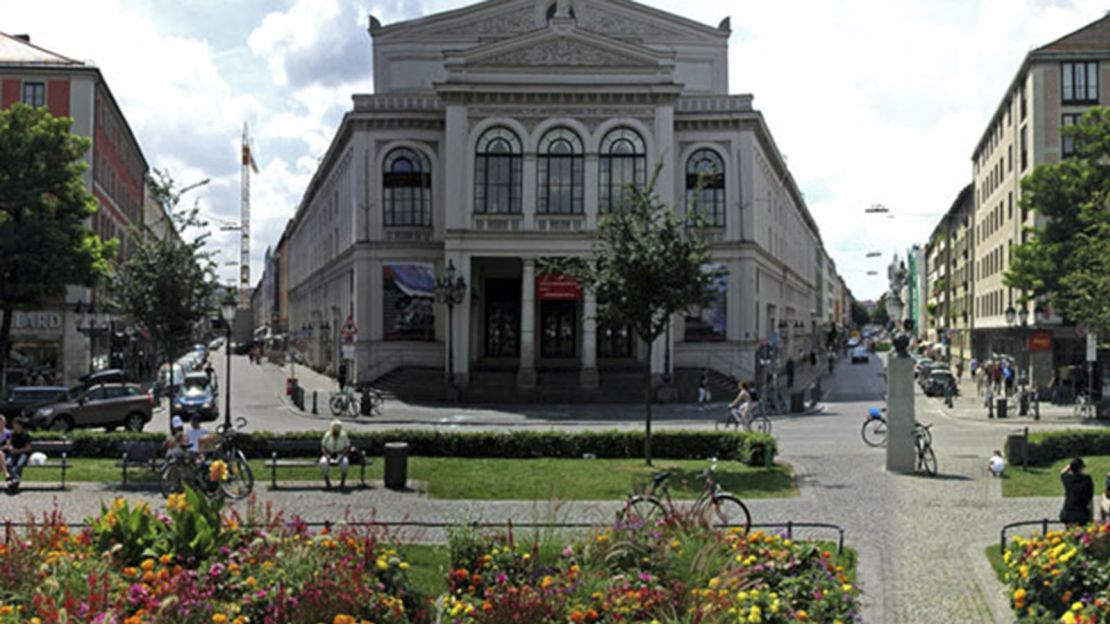
Gärtnerplatz and adjoining Glockenbachviertel are among the hippest shopping and restaurant neighborhoods in the city. This is also the city’s predominantly gay area, which promotes a less conservative air than is customary in the best of Munich. There are numerous here-one-minute-gone-the-next independent fashion stores and cafés, interspersed with others that have stood the test of time. Located at Glockenbach for two decades, Antonetty Lederwerkstatt is a small leather-making workshop in which proprietor Caroline handcrafts designer dresses, bags, purses and various accessories to individual tastes.
Attractions
Deutsches Musuem
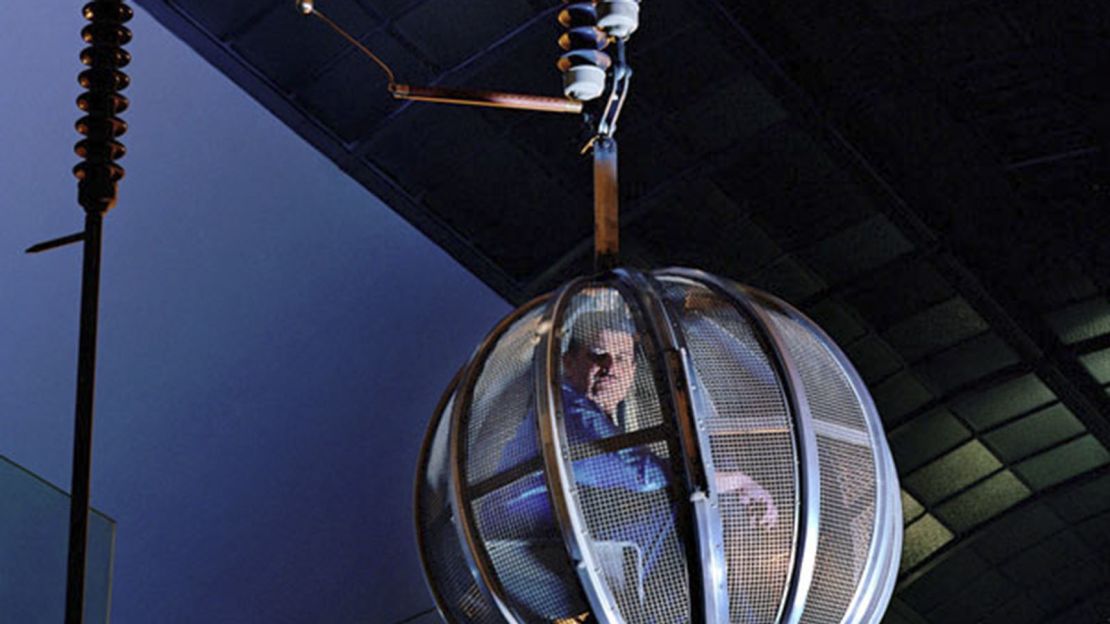
With more than 1 million visitors a year, the Deutsches is Germany’s most visited museum. Originally symbolic of a technologically advanced Germany at the beginning of the 20th century, this exceptional science museum is now a symbol of a city transformed: once the capital of an agricultural, underdeveloped Bavaria, Munich now proudly sits at the center of a modern, high-tech state. The museum is a celebration of international innovation, with an array of exhibits from the field of computers, aviation, automobiles, music, mining, chemistry and nano-technology.
Olympic Stadium and Allianz Arena
Munich is a sporting city, with soccer at the top of the population’s daily discourse. Bayern Munich, one of the richest clubs in the world, once resided in the avant-garde Olympic Stadium, built for the 1972 Olympics. In 2006, Bayern Munich moved into the state-of-the-art, spaceship-like soccer stadium at the incomparable Allianz Arena. Even if tickets for a game are unavailable, the stadium tour (adults €10, children €6.50) is worthwhile.
Opera
The National Theater’s production of “Siegfried.” In 1775, “La Finta Giardiniera” – which Wolgang Amadeus Mozart wrote in Munich while still in his teens– premiered before Bavarian royalty at the city’s Salvatorplatz Theater. Six years later, his “Idomeneo” was staged at the Cuvilliés Theater in the royal Residenz. The best of Munich’s provenance as a city of high culture is diligently preserved and the city’s opera program is passionately discussed in the media.
As with most historic buildings in the city, The National Theater was rebuilt after World War II. Along with Prinzregententheater and the rebuilt rococo Cuvilliés Theater, it’s home to the Bavarian State Opera. Munich also premiered various operas by Wagner, so his work is a frequent highlight, as are the city’s annual opera festivals.
Kunstareal
The best of Munich’s Kunstareal (art district) may not be as large as those of some larger cities, but it’s unsurpassed in the quality and significance of works on display. The Alte Pinakothek (“old gallery”) hosts a collection of 14th- to 17th-century masterpieces by the likes of Dürer, Raphael, Rubens and Rembrandt, and the Neue Pinakothek (“new gallery”) by Friedrich, Monet, Cézanne and van Gogh.
Opened in 2002, the Pinakothek der Moderne (you guessed it: “modern gallery”) is an art, graphic, architecture and design museum in one. The adjacent spectacular colored box is Museum Brandhorst, which holds one of the world’s foremost Cy Twombly collections, as well as significant works by Damien Hirst, Gerhard Richter, Andy Warhol and Jeff Koons.
Alps in a day
By train, the foothills of the Alps are around an hour from Munich’s main station. With a change at Garmisch-Partenkirchen, and an ascent via cogwheel train and cable car, the 2,962-meter summit of Germany’s highest mountain, the Zugspitze, is within reach in a matter of hours. From here, there’s a glorious view across more than 400 Alpine peaks in Germany, Austria, Switzerland and Italy.
AlpspiX
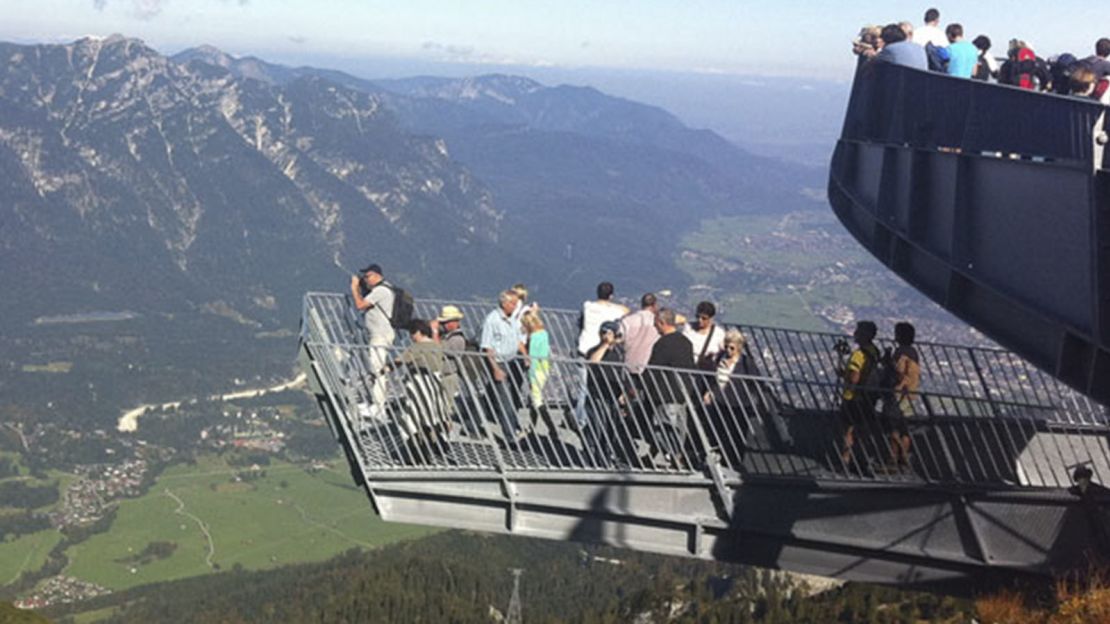
Constructed in 2010, AlpspiX is a spectacular viewing platform consisting of two overlapping walkways that form an “X” a thousand meters above ground.
Protruding 13 meters from the face of Alpspitze mountain, each grated walkway ends in an unobstructed plate glass view of the Höllental (“Valley of Hell”) in Austria and of Garmisch in Germany.
Sky dining
This being Bavaria, a meal is always on the agenda of any trip, and on the descent any of four restaurants is worth a visit: Gipfelalm Lodge, at 2,952 meters the highest restaurant (and beer garden) in Germany; Panorama-Lounge 2962, which specializes in coffee and cakes; the Glaciergarden, with accompanying views across four countries; the SonnAlpin Glacier buffet restaurant with a large outdoor terrace.
Ludwigstrasse
Back in Partenkirchen, Ludwigstrasse is a traditional street preserved in the Bavarian Alpine style. Along this cobblestoned former Venetian trade route a 17th-century building houses the Werdenfels Museum. Among the permanent collections is folk art, handicrafts, farming tools and traditional furniture dating to the 1500s. If transportation schedules permit, Garmisch provides as close to a night “scene” as the region can muster, with Peaches just a kilometer down the road. This combination cocktail bar-beer garden-sports-bar-music-café-casino wears all of the Miesbacher hats of Garmisch-Partenkirchen nightlife.



